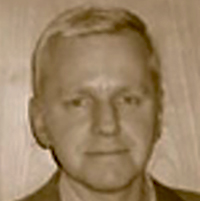Pennsylvania Avenue Corridor / West End, Marianna, Florida
Community Planning Assistance Team Report

The City of Marianna, Florida, together with Jackson County, requested the services of the American Planning Association's (APA) CPAT program to conduct a planning study of the Pennsylvania Avenue corridor, a significant gateway to the city, extending from Interstate 10 to US 90/Lafayette Street. The full team visited Marianna from February 24–March 2, 2018.
Results from a brief survey, informal discussions, and focus group discussions with more than 100 community members revealed commonalities that informed the team's analysis. This final report includes a review of existing conditions, including economic and transportation data as well as land uses and character, followed by the team's recommendations.
Summary recommendations of the report include:
- work to attract more residents to Marianna to enable recruitment of desirable businesses
- add landscaping and signs throughout corridor, but especially at I-10 interchange, to welcome and guide people to downtown Marianna
- use the right-of-way to add sidewalks and bike facilities
- prioritize renewing West End Neighborhood to strengthen the corridor
- focus on institutional uses at the Dozier property, while continuing to market distribution park and other available commercial properties
- concentrate initial efforts on the north end of corridor (US 90 interchange) to gain momentum
- highlight outdoor recreation assets in marketing materials; and
- review city permitting processes and identify opportunities for streamlining.
Meet the Team

Team Leader
Ellen M. Heath, FAICP

Team Member
Peter M. Costa, AICP, PTP

Team Member
Sonja M. Ewing, AICP

Team Member
W. Thomas Lavash

Team Member
Mary Morton, AICP
Details
Table of Contents
The Purpose of the CPAT Program
Guiding Values
Program Background
Executive Summary
Introduction and Background
Planning Process
Marry Marianna Celebration
Survey Results
Stakeholder Interviews
West End Community and Corridor Profile
Demographics and Economic Profile
Mobility in the West End
Auto Circulation Conditions
Land Uses and Character
Project Goals and Recommendations
Transportation
I-10 Interchange Segment
Dozier Property Segment
Middle School and West End Neighborhood Segment
Old Cottondale Road Segment
U.S. 90/Lafayette Street Segment
Economic Development
Appendix A: Meet the Team
Appendix B: Picture Gallery
Appendix C: Stakeholder Interview Schedule
Appendix D: APA Planning Advisory Service QuickNotes: Planning to Support Small Businesses


